- IMDEA Materials has been awarded seven Marie Sklodowska-Curie Postdoctoral Fellowships, the fourth most of any Spanish research organisation or university.
- The projects to be carried out thanks to these prestigious European fellowships cover a range of diverse topics, including new metal alloys, food preservation, and the development of high-energy-storage batteries.
Novel materials that better enable buildings to utilise solar energy for heating and to reflect sunlight, ultrafine iron and titanium-based alloys, and sophisticated modelling to improve the efficiency of gas turbines.
These are just three of the potentially game-changing projects that will be carried out at IMDEA Materials in the coming years following the Institute’s latest success in the annual Marie Sklowdoska-Curie Actions (MSCA) Postdoctoral Fellowship call.
MSCA Postdocotoral fellowships are among the most prestigious and competitive to be awarded within the European Union. The 7 fellowships received by IMDEA Materials is the equal-fourth most of any Spanish research institute or university, while the Institute’s 41% success rate significantly surpasses the 16% average. It also follows on from the 7 fellowships achieved in the previous 2022 call.
“The success in securing these fellowships can be attributed to the innovative ideas, the international prestige of supervisors, and the opportunities for knowledge transfer between researchers and the Institute,” said the head of IMDEA Materials Project Management Office Germàn Infante.
As well as those previously mentioned, the awarded projects also relate to creating capsules to conserve fruit and vegetables properties, inventing benign ionic fluids for aluminum batteries, 3D printing techniques and the use of first Principles Calculations and Calphad Methodology to develop stronger and lighter metal alloys.
Beyond material selection and encapsulation processes, ensuring that each capsule meets exact specifications in terms of size, fill weight, and integrity is essential to guarantee consistent performance. This level of rigor mirrors the meticulous standards that underpin advanced materials research, reinforcing why IMDEA’s success in securing competitive fellowships is so well deserved.
When scaling up production, automated equipment becomes indispensable for maintaining that same level of precision at high throughput. Industrial solutions like a reliable pill tablet capsule counter enable manufacturers to accurately count and package large batches of capsules without manual error, streamlining operations and ensuring that every unit meets stringent quality requirements.
By integrating such specialized machinery into the production line, facilities can boost efficiency, minimize waste, and uphold the exacting standards necessary for applications ranging from food preservation to pharmaceutical delivery systems. In this way, the advancements pioneered at research institutes like IMDEA Materials can transition smoothly into products that benefit consumers and industries alike.
The seven projects will each be overseen by one of IMDEA Materials’ Principal Investigators.
The seven research projects and their supervisors are:
BIOCOMAT (supervised by Dr. Maciej Haranczyk): The consumption of plant-based foods rich in polyphenolic compounds is beneficial due to their antioxidant properties. These compounds protect our health, keep us healthy, and combat diseases. Researchers are working to make sure these polyphenolic compounds stay in optimal conditions by creating capsules to carry and preserve their properties.
IMMMPACCT (Dr. Damien Tourret): Binder Jetting is a 3D printing process that doesn’t require heat application. The project aims to understand this technique’s potential and bridge the gap between theory and practice.
MIM-TBC (Prof. Javier Segurado): The research is centred on developing a model that can predict when it will be necessary to renew the thermal barrier coatings of gas turbines.
NC-PEPA (Dr. Juan José Vilatela): Rechargeable aluminum batteries (RAB) hold great promise due to their safety and energy storage capacity. However, the ionic liquid electrolytes used in these batteries are extremely corrosive to aluminum. This project aims to create a new type of fluid that is benign for RAB.
PD-MPEA (Prof. Javier LLorca): The goal is to find MultiPrincipal Element Alloys (MPEA), a novel class of metals, based on First Principles Calculations and Calphad Methodology. These alloys should be stronger and lighter, making them applicable for improving products such as aircraft and vehicles.
SOLAR-MATER (Prof. Dr. De-Yi Wang): The research focuses on developing materials that allow buildings to utilise solar energy for heating or reflect sunlight to maintain cool temperatures, depending on the weather. This approach will reduce reliance on fossil fuels and promote sustainable energy practices.
UTIFE (Dr. Federico Sket): The project aims to develop ultrafine alloys based on iron and titanium (materials that are strong, lightweight, and heat-resistant) using selective laser melting (SLM). The goal is to enhance their technological maturity and gain a better understanding of how they can be formed, damaged, or healed.
Furthermore, the collective success of Spanish entities in this call is also noteworthy, as Spain was the European country to receive the highest number of grants.
“The Marie Sklodowska-Curie Postdoctoral Fellowships programme plays a crucial role in attracting top researchers to Spain by offering great working conditions,” said Infante.
IMDEA Materials would like to recognise and thank all applicants, supervisors and project managers for their work in achieving this notable milestone. The Institute is confident that all projects will contribute significantly to scientific advancement and innovation.

